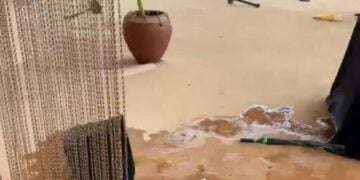As the Economic Community of West African States (ECOWAS) approaches its 50th anniversary, stakeholders from various sectors have expressed deep concern over the regional bloc’s future, emphasising the urgent need for structural reforms to avert potential disintegration.
Speaking at a high-level convening organised by the Centre for Democracy and Development (CDD) in partnership with the West Africa Democracy Solidarity Network (WADEMOS) on Wednesday in Abuja, CDD Senior Fellow Jibrin Ibrahim highlighted ECOWAS’s historical role in promoting democracy and integration in West Africa.
However, he warned that recent developments, including military coups in Mali, Burkina Faso, Niger, and Guinea, posed significant challenges to the bloc’s cohesion.
“ECOWAS has been instrumental in deepening democracy in our region. Yet, the emergence of unconstitutional regimes threatens the unity and progress we’ve achieved,” he said.
He emphasised the importance of maintaining dialogue with the Sahelian countries that have experienced coups, advocating for their reintegration into ECOWAS through a renewed commitment to democratic principles.
Ibrahim also pointed to the region’s economic struggles, noting that West Africa now hosts one of the largest populations of impoverished people globally.
He stressed that the inability of many ECOWAS member states to generate sustainable employment, particularly for the youth, fuels disillusionment and instability.
“The dream of independence—access to education, opportunity, and self-determination—has faded,” he remarked. “That broken promise is now being expressed in terrorism, displacement, and deepened poverty.”
The conference underscored the necessity for ECOWAS to undergo comprehensive reforms. Stakeholders advocated for dismantling systems rooted in colonial and imperial legacies and emphasized the need for inclusive governance structures that prioritize the welfare of all citizens.
“Without reclaiming West Africa’s resources for its people, genuine development and integration will remain a distant dream,” he added.
Also, chairman of the CDD Board, Comrade John Odah, reflected on ECOWAS’s 50-year journey, acknowledging both achievements and challenges.
He called upon civil society organizations to critically evaluate the bloc’s successes and shortcomings and to actively support the vision of regional integration.
“ECOWAS was established to integrate 15 sub-Saharan African countries socially, economically, culturally, and politically. Despite challenges, significant progress has been made. It’s imperative for civil society to ensure that the dream of ECOWAS integration is not aborted,” he said.
He acknowledged the contributions of founding fathers and the challenges faced, including efforts by former colonial powers to hinder integration. Despite these obstacles, significant achievements have been made.
He emphasised the responsibility of civil society to critically evaluate successes and challenges and to support the integration vision, which was realized in 1975.
He urged stakeholders to interrogate what has been successful and what have been the challenges in the 50-year history of ECOWAS integration, and to contribute in whatever way possible to ensure the dream of ECOWAS integration is not aborted.





